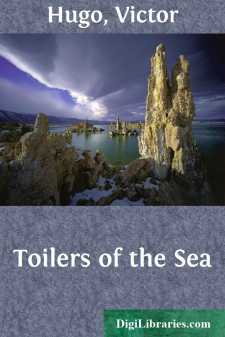Categories
- Antiques & Collectibles 13
- Architecture 36
- Art 48
- Bibles 22
- Biography & Autobiography 813
- Body, Mind & Spirit 142
- Business & Economics 28
- Children's Books 17
- Children's Fiction 14
- Computers 4
- Cooking 94
- Crafts & Hobbies 4
- Drama 346
- Education 46
- Family & Relationships 57
- Fiction 11829
- Games 19
- Gardening 17
- Health & Fitness 34
- History 1377
- House & Home 1
- Humor 147
- Juvenile Fiction 1873
- Juvenile Nonfiction 202
- Language Arts & Disciplines 88
- Law 16
- Literary Collections 686
- Literary Criticism 179
- Mathematics 13
- Medical 41
- Music 40
- Nature 179
- Non-Classifiable 1768
- Performing Arts 7
- Periodicals 1453
- Philosophy 64
- Photography 2
- Poetry 896
- Political Science 203
- Psychology 42
- Reference 154
- Religion 513
- Science 126
- Self-Help 84
- Social Science 81
- Sports & Recreation 34
- Study Aids 3
- Technology & Engineering 59
- Transportation 23
- Travel 463
- True Crime 29
Our website is made possible by displaying online advertisements to our visitors.
Please consider supporting us by disabling your ad blocker.
Toilers of the Sea
by: Victor Hugo
Description:
Excerpt
INTRODUCTION
Victor Hugo was thinking much of Æschylus and his Prometheus at the time he conceived the figure of Gilliatt, heroic warrer with the elements. But it is to a creature of the Gothic mind like Byron's Manfred, and not to any earlier, or classic, type of the eternal rebellion against fate or time or circumstance, that Hugo's readers will be tempted to turn for the fellow to his Guernsey hero:
"My joy was in the wilderness—to breathe
The difficult air of the iced mountain's top,
Where the birds dare not build—nor insects wing
Flit o'er the herbless granite; or to plunge
Into the torrent, and to roll along
On the swift whirl of the new-breaking wave
Of river-stream, or ocean, in their flow."
The island of Guernsey was Gilliatt's Alp and sea-solitude, where he, too, had his avalanches waiting to fall "like foam from the round ocean of old Hell." And as Byron figured his own revolt against the bonds in Manfred, so Hugo, being in exile, put himself with lyrical and rhetorical impetuosity into the island marcou and child of destiny that he concocted with "a little sand and a little blood and a deal of fantasy" in the years 1864 and 1865. There is a familiar glimpse of the Hugo household to be had in the first winter of its transference to the Channel Islands, years before Les Travailleurs was written, which betrays the mood from which finally sprang this concrete fable of the man-at-odds. It was the end of November 1852, and a father and his younger son sat in a room of a house of Marine Terrace, Jersey—a plain, unpicturesque house; square, hard in outline, and newly whitewashed,—Methodism, said Hugo, in stones and mortar. Outside its windows the rain fell and the wind blew: the house was like a thing benumbed by the angry noise. The two inmates sat plunged in thought, possibly thinking of the sad significance of these beginnings of winter and of exile which had arrived together. At length the son (François Hugo) asked the father what he meant to do during their exile, which he had already predicted would be long? The father said, "I shall look at the sea." Then came a silence, broken by a question as to what the son would do? To which he replied that he would translate Shakespeare.
Victor Hugo's own study or eulogy of Shakespeare was written as a preamble to his son's translation of the plays. It is not too much to connect the new and ample creative work that followed, including his great novel of Revolution, Les Misérables, and his poems in La Légende des Siècles (first series) with the double artistic stimulus gained from this conditioned solitude and his closer acquaintance with the dramatic mind of that "giant of the great art of the ages," as he termed our English poet in the book already quoted from.
The Shakespeare book is dated from Hauteville House, 1864. Les Travailleurs from the same quarters, March 1866. The Hugos had perforce suddenly left Jersey for Guernsey in 1855, owing to the gibes and flouts of an unlucky revolutionary Jersey journal, L'Homme, at the two governments: Victor Hugo being already a marked man for his pains....















